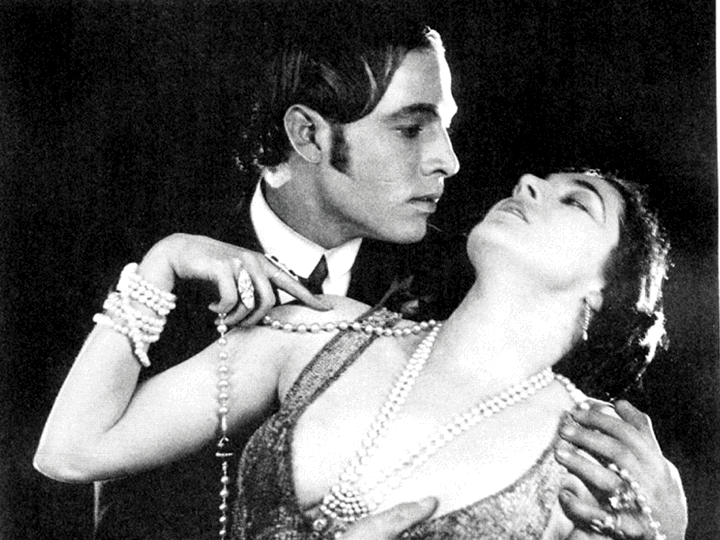A rich vein mined in award season
- Share via
The life after: Edward Zwick’s “Blood Diamond,” which arrives Tuesday on DVD, received mixed reviews when it opened in December. And its American box office, $56.5 million, certainly didn’t sparkle.
But the thriller -- set in Sierra Leone in 1999 -- about an ex-mercenary-turned-diamond smuggler (Leonardo DiCaprio) who forms an uneasy alliance with a fisherman (Djimon Hounsou) was a hit during award season. Former model Hounsou was named best supporting actor by the National Board of Review, and he received Screen Actors Guild and Academy Award nominations.
Though many critics thought DiCaprio gave a stronger performance in “The Departed,” the actor received Golden Globe, SAG and Oscar nominations for his savvy turn in “Blood Diamond” as a manipulator who ultimately finds redemption.
“Blood Diamond” also received three Academy Award nominations in technical categories.
High, low comedy
Couch potato: Comedy comes in all shapes and sizes -- broad, sophisticated, cruel, romantic, acerbic, ironic and even surreal. Two vintage TV series making their digital bows Tuesday --”McHale’s Navy” and “Maude” -- illustrate the genre’s diversity.
TV comedies don’t get much broader than “McHale’s Navy.” The series, which debuted on ABC in fall 1962, was a less subtle version of Phil Silvers’ classic 1950s series, “Sergeant Bilko.” Set during World War II, the comedy revolved around the bizarre crew of a PT boat. Oscar winner Ernest Borgnine played the free-and-easy Lt. Cmdr. Quinton McHale and Joe Flynn was his long-suffering commander, Capt. Wallace B. Binghamton. The series did feature several top comedic talents, including a very young Tim Conway and veteran Carl Ballantine. The slapstick series finally cracked the top 30 in the Nielsen ratings in its second season; the show set into the rerun sunset in August 1966.
“Maude,” which premiered on CBS in fall 1972, was the first spin-off of the network’s landmark comedy series “All in the Family.” Maude (Bea Arthur) had been introduced on “Family” as Edith’s liberal and outspoken cousin who locked horns with Archie. Maude proved so popular she got her own show, in which she lived in a New York suburb with her fourth husband, Walter (Bill Macy), her divorced daughter (Adrienne Barbeau) and the daughter’s young son (Brian Morrison).
During its six-season run, the show wasn’t afraid to show its dark side, especially in the controversial episode in which Maude had an abortion. Even Walter battled alcoholism and had a nervous breakdown. The series placed in the top 10 for its first five seasons and Arthur won an Emmy for best actress in a comedy series in its penultimate season.
“Maude” also was the launching pad for another long-running CBS sitcom. Maude’s first maid, Florida (Esther Rolle), and her husband, Henry (John Amos), were given their own show, “Good Times,” in 1974.
‘Naked City’ story
Location, location, location: After World War II, Hollywood movies weren’t just confined to studio sound stages or fairy-tale-esque back lots. Productions actually began going on location, especially for hard-hitting semi-documentary films such as Fox’s “The House on 92nd Street” and “Call Northside 777.”
Universal also ventured from its environs for its award-winning 1948 police drama “The Naked City,” which debuts Tuesday in a special Criterion edition.
Shot on location in New York City, the landmark thriller chronicles the examination of a murder investigation. Hidden cameras were used to capture the vitality of the Big Apple.
And “Naked City” doesn’t have an opening title sequence, just noted newspaperman-turned-producer Mark Hellinger’s voice-over credits. Hellinger, who died in 1947, also supplies the famous ending line: “There are 8 million stories in the Naked City. This has been one of them.”
Barry Fitzgerald, Howard Duff and Don Taylor star; Jules Dassin, who would be blacklisted just a few years later, supplied the dazzling direction. The film won Oscars for William Daniel’s atmospheric black-and-white cinematography and Paul Weatherwax’s editing. Scribe Malvin Wald was Oscar-nominated too. In the early 1960s, ABC turned “The Naked City” into a popular TV series.
*
-- Susan King
More to Read
The complete guide to home viewing
Get Screen Gab for everything about the TV shows and streaming movies everyone’s talking about.
You may occasionally receive promotional content from the Los Angeles Times.






